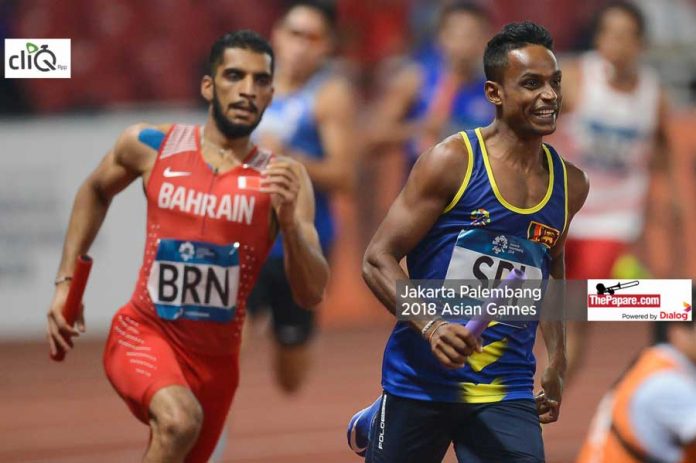The 18th Asian Games ended recently with the East Asian giants, China, Japan and South Korea dominating the medal table. Sri Lanka on the other hand earned the undesirable distinction of being among the 9 countries (out of 46 participating nations) that failed to secure a single medal.
Understandably, the public reaction to the Lankan performance at the games has been overwhelmingly negative. While many have been critical of the administrative blunders in the lead up to and during the games, others have called out the athletes for failing to come close to, match, or better their personal bests during the games. So, does what transpired in Jakarta and Palembang mean that its all doom and gloom for the future of Track and Field in Sri Lanka? My answer to that is, it does not have to be.
Sri Lanka has been an active participant in the Asian games ever since its inception in 1951, and has been a consistent feature in the medal tables in games held subsequently. However, the country has experienced a dearth in medals since the “Golden Generation” of Sri Lankan athletics bowed out after the 2006 Doha games. The only medals Sri Lanka has managed to secure since have come from T20 Cricket, when the sport was featured for the first and seemingly only time, during the 2014 Incheon games.
Sri Lanka should take solace from the lion-hearted performances of at least some of the participants at the 2018 Asian Games. For instance, the 4 x 400m men’s relay team, which featuring a group of up and coming youngsters, who ran their hearts out and fell agonizingly short of the National Record by a mere 0.03 seconds. This was an impressive feat, especially when one takes into consideration the fact that the National Record was set by a team featuring the likes of Rohan Pradeep Kumara and Ranga Wimalawansa, and was good enough a time to earn them the gold medal at the 2000 Asian Athletics Championships. Also noteworthy is that, this time around, not only did the Lankan track athletes have to compete against athletes from India, China and Japan; many of whom have been making waves in recent times under the supervision of their better endowed governing bodies, they also had to compete against the likes of Qatar and Bahrain, two contingents that fielded a number of recently naturalized athletes.
Elsewhere in the field and in the pool, the Sri Lankan contingent showed moments of brilliance. The performances of Matthew Abeysinghe, the Kabaddi team, the Hockey team and the Rugby team, all deserve mentioning.
Particularly impressive were the efforts of the Sri Lanka Rugby sevens team, who almost got the better of a Japanese side that had finished 4th in the Rio Olympic games of 2016 in an enthralling semi final encounter.
Despite the stick they have been receiving from more directions than one, the Hockey team managed to record two landmark victories. Both men’s and women’s Kabbadi teams held their own against teams from India and Bangladesh, two countries with a rich history in the sport.
While the overall performance of the Lankan contingent at the 2018 Asian Games is unlikely to go down in history as memorable, and will instead most likely be remembered for the administrative blunders such as the those that cost Sri Lanka a starting place in the 4 x 400m Mixed Relay and Men’s High Jump, all is not lost – at least not yet. With proper vision, the administrators can help convert many of these athletes into medal prospects come 2022 Asian games in Hangzhou.
However, this may all end up being just wishful thinking, unless proper and urgent measures are taken by those with the power to do so in order ensure that the prospects will amount to something more materialistic, preferably in gold, silver or bronze.














